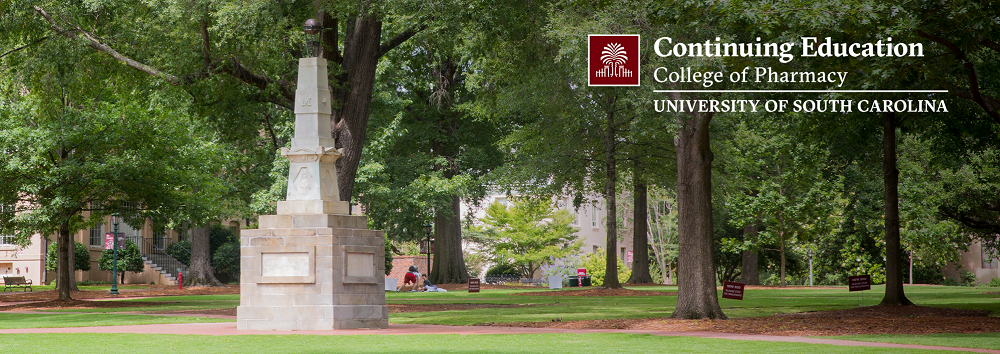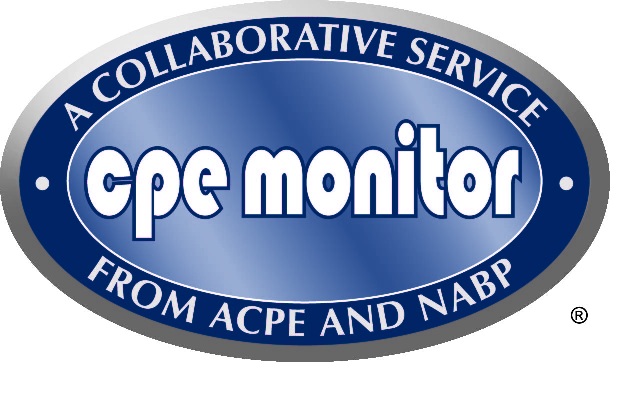Credit card payments accepted online*: https://squareup.com/store/pdc
*A convenience fee of 3.5% will be added to your tuition to cover online payment processing.
Venmo payments accepted: please send to @pdcalphakappawkf
Check payments accepted – please make checks payable to Phi Delta Chi, and mail to:
|
8:00 am-
9:00 am
|
Check In and Breakfast
|
|
9:00 am-
10:00 am
|
Opioid Monitoring for Pharmacies
Debra Black; Drug Enforcement Administration, Diversion Group Supervisor
ACPE UAN 0062-9999-18-048-L03-P/T (1.0 credit hours)
Learning Objectives:
At the conclusion of the program, the pharmacist and pharmacy technician will be able to:
|
|
10:00 am-10:15 am
|
Break
|
|
10:15 am-
12:15 pm
|
New Drug Update 2017-18
C. Wayne Weart, Pharm.D., BCPS, FASHP, FAPhA; Professor Emeritus, Department of Clinical Pharmacy and Outcomes Sciences, MUSC College of Pharmacy
ACPE UAN 0062-9999-18-049-L01-P/T (2.0 credit hours)
Learning Objectives:
At the conclusion of the program, the pharmacist will be able to:
At the conclusion of the program, the pharmacy technician will be able to:
|
|
12:15 pm-
1:00 pm
|
Lunch
|
|
1:00 pm-
3:00 pm
|
The Impact of Medicare and Medicaid on Pharmacy Practice
Bryan Amick, PharmD, MS, MBA; Deputy Director, SC Department of Health & Human Services
ACPE UAN 0062-9999-18-050-L04-P/T (2.0 credit hours)
Learning Objectives:
At the conclusion of the program, the pharmacist and pharmacy technician will be able to:
|
|
3:00 pm-
3:15 pm
|
Break
|
|
3:15 pm-
4:15 pm
|
The Evolving Role of Pharmacists and Technicians in Healthcare and Maintaining a Competitive Presence in the Job Market
Matt Walker, PharmD; Assistant Professor and Director of Experiential Education, MUSC College of Pharmacy
ACPE UAN 0062-9999-18-051-L04-P/T (1.0 credit hours)
Learning Objectives:
At the conclusion of the program, the pharmacist and pharmacy technician will be able to:
|
|
4:15 pm-
4:30 pm
|
Wrap Up and Accessing CE Documentation
|
Date: Mar 24, 2018 09:00 AM - 04:30 PM
Fee
CE Hours
CE Units
Activity Type
- Knowledge
Target Audience(s)
- Pharmacists
- Pharmacy Technicians
Accreditation(s)

|
The University of South Carolina College of Pharmacy is accredited by the Accreditation Council for Pharmacy Education as a provider of continuing pharmacy education.
|
Co-Sponsor(s)
Requirements for CE Credit
- Identify required records to be in compliance with DEA regulations
- Recognize opioid prescribing which is out of the normal prescribing patterns
- Detect various red flags of diversion related to prescribing and dispensing of controlled substances
Speaker(s)/Author(s)
|
Debra Black
|
Activity Number
0062-9999-18-048-L03-P/TCE Hours
- Discuss the FDA Warnings and label changes that relate to medication safety and how this information should be applied in the selection and monitoring of evidence-based pharmacotherapy to achieve better patient related outcomes.
- Describe the 2018 updated ACIP/CDC Immunization recommendations and new FDA approved vaccines.
- Describe the current information concerning newly FDA approved medications (pharmacology, pharmacokinetics, efficacy and safety data, drug interactions, dosing, monitoring and cost) in the selection of evidence-based pharmacotherapy.
- Compare and contrast these selected newer agents to the existing therapies and be able to recommend an appropriate medication regimen for a specific patient.
- Discuss the FDA Warnings and label changes that relate to medication safety.
- Describe the 2018 updated ACIP/CDC Immunization recommendations and new FDA approved vaccines.
- Describe the current information concerning newly FDA approved medications (drug interactions, dosing, adverse effects, and cost)
Speaker(s)/Author(s)
|
C. Wayne Weart, PharmD, FASHP, FAPhA
|
Activity Number
0062-9999-18-049-L01-P/TCE Hours
- Describe the historical context of the creation and development of Medicare and Medicaid.
- Summarize the role that Medicare and Medicaid play in the healthcare system, relative to other payer participants.
- Explain the various components of pharmacy cost, from the perspective of Medicaid and Medicare, and how those cost components drive changes in pharmacy reimbursement.
- Describe recent and upcoming changes to Medicaid coverage policy, with a focus on opioids and formulary approaches.
- Discuss recent legislative developments related to healthcare and how they are likely to impact the practice of pharmacy.
- Identify specific challenges and opportunities that changes in Medicaid and Medicare present to his/her pharmacy practice environment.
Speaker(s)/Author(s)
|
Bryan Amick, PharmD, MS, MBA
|
Activity Number
0062-9999-18-050-L04-P/TCE Hours
- Describe the current pharmacist and technician job market
- Discuss the evolution of pharmacist/technician credentials and their corresponding responsibilities
- Evaluate CV and resume components for use in career search and job interview
- Identify elements of a plan to properly market pharmacist and technician skills in an increasingly competitive field
Speaker(s)/Author(s)
|
Matt Walker, PharmD
|

